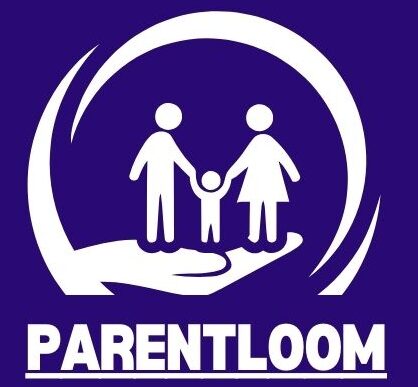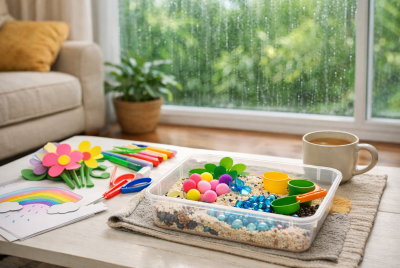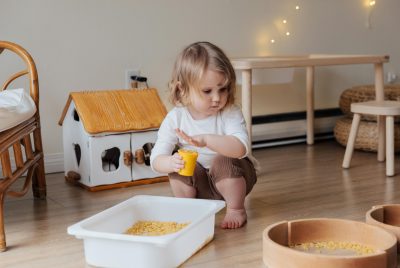Parent Functions: The Core Role of a Parent in the Family
We may earn a commission for purchases made using our links. Please see our disclosure to learn more.
Boy, oh boy, parenting – what a wild ride! (And trust me, I’ve been on some crazy roller coasters.) It’s like juggling flaming torches while tap dancing on a tightrope. Rewarding? You bet. Challenging? Heck yeah. A learning curve steeper than Everest? Absolutely. But what exactly are these “parent functions” everyone’s buzzing about? Grab a cup of joe (or a glass of wine, no judgment here), and let’s dive into this parenting adventure together.
What Are Parent Functions in the Family?
Alright, folks, let’s break it down. Parent functions aren’t some fancy mathematical equation (though sometimes parenting feels like advanced calculus). Nope, we’re talking about the bread and butter of what it means to be a mom or dad. It’s like being the CEO, CFO, and COO of your own little family corporation – except the pay is terrible, and the hours are worse.
These functions are the secret sauce that turns a house into a home and a child into a functional adult. (Well, mostly functional. We can’t work miracles, people!)
Why Are Parent Functions Important?
Picture this: a ship without a captain, a garden without a gardener, a classroom without a teacher. Chaos, right? That’s what a family would be without parent functions. These roles provide the backbone that keeps the family unit from turning into a scene from “Lord of the Flies.”
Parents are like Swiss Army knives – multi-functional tools essential for survival. (Though sometimes we feel more like a dull butter knife trying to cut through a block of frozen cheese.)
The Essential Parent Functions in the Family
- Provider of Basic Needs
Welcome to your new job as a human vending machine! From diapers to dinner, you’re now responsible for keeping another human being alive. (No pressure, right?) It’s like playing The Sims, but in real life, and with much higher stakes.
- Emotional Support System
Congrats! You’re now a walking, talking tissue box. Get ready to wear many hats: therapist, cheerleader, and sometimes punching bag (emotionally speaking, of course). Your job is to help your mini-me navigate the emotional rollercoaster of life. (And maybe invest in some waterproof mascara for yourself.)
- Disciplinarian and Guide
Ah, yes. The “fun police” as your kids might lovingly call you. Someone’s gotta lay down the law, and guess what? That someone is you. It’s a delicate balance between “strict parent” and “cool parent.” (Pro tip: No matter how hard you try, you’ll never be as cool as you think. Just embrace the dad jokes and mom dance moves.)
- Role Model
Remember all those times you said, “When I’m a parent, I’ll never do that”? Well, buckle up, buttercup, because it’s showtime! Your kids are like tiny sponges, soaking up everything you do. (Including that time you “forgot” to return the extra change at the grocery store. Oops.)
- Teacher and Educator
Welcome to the School of Life, where you’re the professor of everything from tying shoelaces to navigating social media. (And yes, you will be tested. Daily.) Your curriculum includes life skills, critical thinking, and how to not put metal in the microwave.
- Protector
Time to channel your inner superhero! Cape optional, but a fierce “mom look” or “dad voice” is mandatory. Your mission, should you choose to accept it (who are we kidding, you don’t have a choice), is to keep your little ones safe from everything from scraped knees to cyberbullies.
Balancing Parent Functions: A Challenging Yet Rewarding Task
Balancing all these roles is like trying to solve a Rubik’s Cube while blindfolded and riding a unicycle. Overwhelming? You bet. But here’s a little secret: nobody’s got it all figured out. We’re all just winging it, pretending to be adults.
Between work, household chores, and the constant needs of tiny humans, how do you manage it all? The key is prioritization and accepting that perfection is a myth. (Seriously, if your house is spotless with kids around, I’m calling witchcraft.)
Some days you’ll feel like a parenting rockstar, and others you’ll wonder if it’s too late to return your kids to the hospital. (Spoiler alert: it is.) It’s all about finding what works for your family and remembering that macaroni for dinner three nights in a row doesn’t make you a bad parent. It makes you resourceful!
Parent Functions Across Different Stages of Childhood
Just like your kids outgrow their shoes every five minutes, your parenting role evolves faster than you can say “they grow up so fast.” Let’s break it down:
Infant Stage: The Nurturer
Welcome to the zombie parent phase! Your main function is keeping this tiny, screaming potato alive. Sleep becomes a distant memory, and you’ll find yourself debating the merits of different diaper brands at 3 AM. (Trust me, it’s riveting conversation.)
Toddler and Preschool Stage: The Teacher and Guide
Congratulations! Your baby is now a tiny, opinionated human with the energy of a squirrel on espresso. Your job? Teaching them not to eat sand, lick windows, or use the dog as a horse. Good luck!
School-Age: The Support System
Ah, the school years. Where you transform into a chauffeur, tutor, and social secretary. Your calendar is now filled with soccer practice, piano lessons, and PTA meetings. (Wine is optional but highly recommended.)
Teenage Years: The Mentor
Welcome to the “fun” years! Your sweet child has morphed into a hormonal, eye-rolling creature who thinks you’re the least cool person on the planet. Your job now is to guide them while pretending their attitude doesn’t hurt your feelings. (Spoiler: it does.)
How to Maintain Effective Parent Functions
Feeling overwhelmed yet? Don’t worry, I’ve got your back. Here are some tips to help you navigate this parenting gig:
Be Present: Sometimes, the most important thing you can do is just show up. Put down your phone (yes, even if you’re in the middle of a heated Facebook debate about the best way to fold socks) and really be there.
Communicate Openly: Create an environment where your kids feel comfortable talking to you. Even if it’s about their weird obsession with collecting rocks or their crush on the kid who eats glue.
Set Boundaries: Kids need limits like fish need water. But here’s the tricky part – explain why those rules exist. “Because I said so” might work in the short term, but it won’t win you any parenting awards.
Lead by Example: Actions speak louder than words. So maybe it’s time to put down that third slice of cake if you’re preaching about healthy eating. (Or at least hide in the pantry to eat it. I won’t tell.)
Parent Functions in a Changing World
Parenting today is like trying to hit a moving target while blindfolded. With technology advancing faster than we can update our phones, parents face new challenges daily. How do you manage screen time when you can barely manage your own? How do you navigate social media when your kid thinks TikTok is a type of candy?
The key is to stay informed (or at least pretend to be) and be willing to adapt. Remember, it’s okay to not have all the answers. Google is your friend. (Just make sure to clear your search history. No one needs to know you asked if it’s normal for kids to eat their boogers.)
Co-Parenting: Sharing Parent Functions
For those navigating the co-parenting waters, communication is key. It’s like a delicate dance, except instead of music, you’re moving to the rhythm of custody schedules and differing parenting styles. Remember, you’re on the same team, even if sometimes it feels like you’re playing different sports.
The Emotional Impact of Parent Functions on Children
The way you parent doesn’t just affect your blood pressure – it shapes your child’s entire future. (No pressure or anything.) A nurturing, supportive environment can help your kid grow into a confident, emotionally stable adult. On the flip side, inconsistent parenting might lead to a future filled with therapy sessions and passive-aggressive Facebook statuses.
Common Challenges in Fulfilling Parent Functions
Parenting isn’t always sunshine and rainbows. Sometimes it’s more like tornadoes and thunderstorms. Common hurdles include:
- Balancing work and family (because apparently, we can’t all be independently wealthy)
- Dealing with behavioral issues (aka, why is my angel child suddenly acting like a gremlin?)
- Maintaining a strong relationship with your partner (remember date nights? Yeah, me neither)
Remember, every parent faces difficulties. It’s not about being perfect; it’s about doing your best and maybe hiding in the bathroom for five minutes of peace when needed.
Products for Parents to Be More Effective in Parenting
In this modern age, we’re lucky to have tools that can make parenting a tad easier. (Though I’m still waiting for that “make my kid listen” button.)
Knowledge is power, my friends. These books offer expert advice on everything from sleep training to dealing with teenagers. (Warning: Results may vary.)
For when you want to obsessively check on your sleeping baby without actually getting up. (We’ve all been there.)
Because “Mom, what’s for dinner?” is the official anthem of parenthood. These tools help you plan meals and maybe even convince your kids that broccoli is delicious.
For those days when your baby decides they’re part koala and refuses to be put down. Plus, it leaves your hands free for important tasks like scrolling through Instagram or eating chocolate in secret.
Fancy charts and apps to encourage good behavior. Because sometimes, gold stars and high-fives just don’t cut it.
For when you need a moment of peace but your kids have decided to reenact World War III in the living room.
To remind you that sleep is important and that chasing toddlers counts as cardio.
Research Insights: The Role of Parenting Knowledge and Styles in Child Development
Parenting Knowledge, Attitudes, and Practices
Turns out, there’s actual science behind this parenting gig! Research shows that understanding child development and effective parenting strategies can make a huge difference. (So maybe all those parenting books weren’t a waste of money after all!)
Interestingly, parenting knowledge often correlates with education levels. (But don’t worry, a PhD isn’t required to be a good parent. Thank goodness!)
Impact of Parenting Styles on Learning
Studies show that an authoritative parenting style (firm but warm) is linked to better learning outcomes. It’s like the Goldilocks of parenting – not too strict, not too lenient, but just right.
Parental self-efficacy (fancy term for believing in your parenting skills) also plays a big role. High self-efficacy leads to more supportive behaviors, while low self-efficacy might result in harsher methods. (Note to self: Fake it till you make it!)
Conclusion
Whew! We’ve covered a lot of ground, haven’t we? Parent functions are the secret ingredients that turn the chaos of family life into something beautiful (and only occasionally resembling a circus). From diaper duty to dealing with dating, parenting is an ever-evolving journey filled with laughter, tears, and an alarming amount of bodily fluids.
Remember, there’s no such thing as a perfect parent. We’re all just doing our best, learning as we go, and hoping we don’t mess up too badly. So cut yourself some slack, enjoy the ride, and maybe invest in some good concealer for those sleepless nights.
Parenting: it’s the toughest job you’ll ever love. (And the only one where getting puked on is considered a normal day at the office.)
FAQs About Parent Functions
- What are the most important parent functions? The VIP list includes providing basic needs, emotional support, guidance, discipline, and being a role model. (Bonus points if you can do it all while maintaining your sanity!)
- How do parent functions change as children grow? They evolve faster than your kid’s shoe size! From round-the-clock caregiver for infants to part-time taxi driver and full-time worry wart for teenagers.
- How can parents maintain balance in fulfilling their functions? Prioritize, be present, and accept that perfection is a myth. Also, coffee. Lots of coffee.
- How do parent functions impact a child’s emotional development? Enormously! Positive parenting can help create confident, resilient kids. Inconsistent parenting… well, let’s just say it might keep future therapists in business.
- What are some challenges parents face in fulfilling their functions? Where do we start? Work-life balance, behavior management, maintaining adult relationships… and figuring out how to assemble that impossible IKEA furniture while your toddler “helps.”




